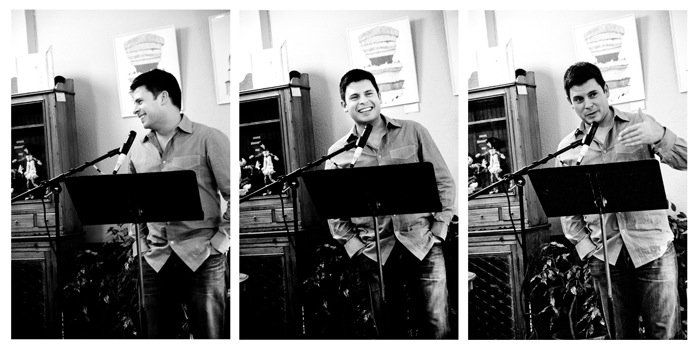
The poet John B. Lee has collected a splendid new anthology of poems, original documents and fiction commemorating the Canadian part of the War of 1812 (200th anniversary this year, at least the start of conflict). The book, entitled An Unfinished War, War of 1812 Prose & Poetry (Black Moss Press), is imminent, pre-orders available, and contains two short stories by dg, “A Flame, a Burst of Light” which was first published in The New Quarterly last year and “Swain Corliss, Hero of Malcolm’s Mills (now Oakland, Ontario), November 6, 1814” which first appeared in Gordon Lish’s magazine The Quarterly in the late 1980s (dg still has the ms with Lish’s hand-written editorial notes). This story was subsequently selected by Margaret Atwood for inclusion in the New Oxford Book of Canadian Stories. It also appears in dg’s collection A Guide to Animal Behaviour.
Though written far apart in time, the stories reflect dg’s ongoing obsession with the history of the bloody ground where he grew up, Norfolk County, Ontario, on the north shore of Lake Erie. The Battle of Malcolm’s Mills took place six miles up the road from the family farm; the McCall mentioned in the story is a relative. The return of the prisoners of war took place on Long Point Bay where dg’s Loyalist ancestors settled a few years before. Both events took place in 1814.
In his long effort to parse the historical and geographical grammar of the place where he grew up, dg has collected an anthology of quotations Long Point, a Geography of the Soul: An Anthology of Quotations about Long Point and Norfolk County.
dg
———–
from “A Flame, a Burst of Light”
Of the reasons for our lengthy and fatal sojourn in the swamps of Sandusky, there are several theories. 1) The Americans wished to exact vengeance for atrocities committed by Capt. Crawford’s Indios on the Raisin River. 2) The Americans wished to prevent the men from rejoining their regiments before the close of the summer campaigns. 3) To supply the want of souls in the afterlife.
We were seven hundred dreamers starving and shivering to death in this gateway to the City of Dis.
Of the reasons for our deaths, there are no theories. Ague, fever (quartan, intermittent and acute) and the bloody flux carried us away. Old wounds, opened from damp and lack of common nutriment; pneumonia, dropsy, pthithis, galloping consumption, gangrene and suicide account for the rest. An alarming number of walking corpses attended the fallen like Swiss automatons in a magic show, then tottered off to expire face down in the bulrushes.
In the swamps of Sandusky, there were more corpses than souls. We had a surfeit of bodies. They were difficult to bury in the washing ooze.
Kingsland and Thompson, wraiths and daredevils, murderous on the day with Springfields we borrowed from the Americans at Detroit, mounted amateur theatricals though much bothered at delivering their lines on a stage of sucking mud. Sgt. Collins, of Limerick and the 41st, took the female roles, warbling a sweet falsetto. I mind he scalped Kentuckians with his razor at the Battle of the Raisin, along with Tsenkwatawa’s unspeakable Shawnee….
from “Swain Corliss, Hero of Malcolm’s Mills (now Oakland, Ontario, November 6, 1814”
In the morning, the men rubbed their eyes and saw Kentuckycavalry and Indians mounted on stolen farm horses cresting the hill on the opposite side of the valley. The Kentuckians looked weary and calm, their hollow eyes slitted with analysis. We were another problem to be solved; they had been solving problems all the way from Fort Detroit, mostly by killing, maiming and burning, which were the usual methods.
The Indians were Cherokee and Kickapoo, with some Muncies thrown in. They had eagle-feather rosettes and long hair down the sides of their heads and paint on their faces, which looked feminine in that light. Some wore scalps hanging at their belts.
They came over the hill in a column, silent as the steam rising from their mounts, and stopped to chew plug tobacco or smoke clay pipes while they analyzed us. More Kentuckians coming on extended the line on either side of the track into the woods, dismounted, and started cook fires or fell asleep under their horses’ bellies, with reins tied at their wrists.
General McArthur rode in with his staff, all dressed in blue, with brass buttons and dirty white facings. He spurred his mare to the front, where she shied and pranced and nearly fell on the steep downward incline. He gave a sign, and the Indians dismounted and walked down the road to push our pickets in. The Indians had an air of attending their eighty-seventh-or-so battle. They trudged down the road bolt upright, with their muskets cradled, as though bored with the whole thing, as though they possessed some precise delineation of the zone of danger that bespoke a vast familiarity with death and dying….
—Douglas Glover
—————
Order An Unfinished War: In the US here; in Canada here.




























